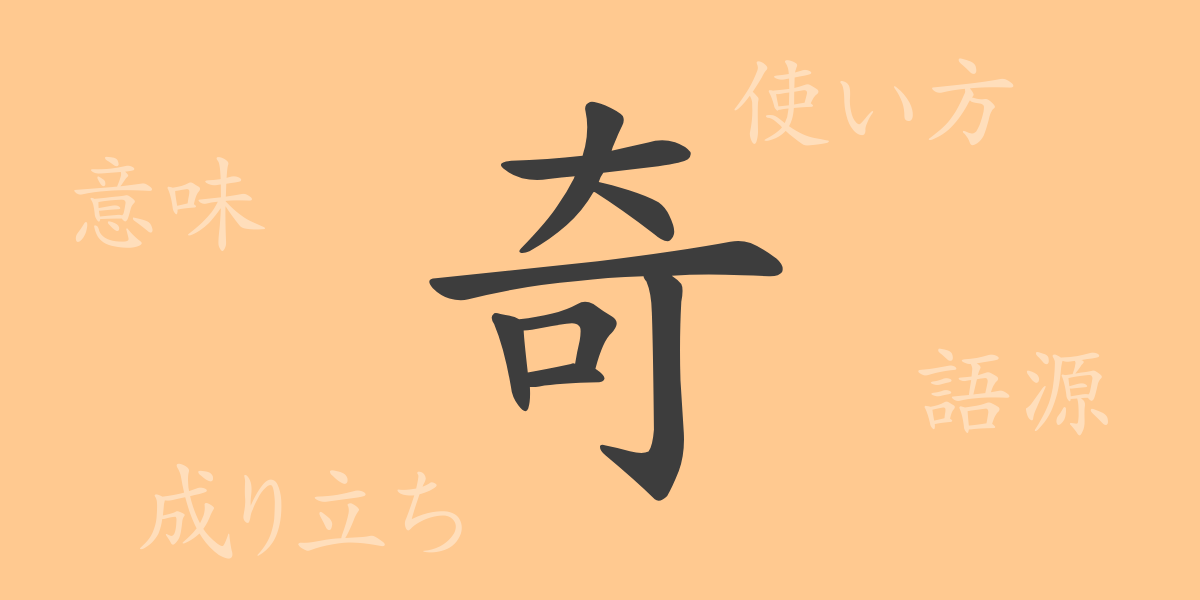One of the rich expressions in the Japanese language includes the character “奇” (き, ki). What history and meaning are imbued in this character that we often encounter in everyday life? In this article, we will delve into the origins of “奇” (き, ki), its readings, meanings, usage, and even idioms and phrases that use “奇” (き, ki), exploring a wide range. By understanding the power hidden in each character, let’s embark on a journey to rediscover the depth of the Japanese language.
The Origin (Etymology) of 奇 (き, Ki)
The kanji “奇” (き, ki) originates from ancient Chinese oracle bone script. It was originally a pictogram meaning “a large rock mountain,” and later came to be used with connotations such as “unusual” and “abnormal.” Over time, its shape evolved, settling into the current character “奇” (き, ki).
The Meaning and Usage of 奇 (き, Ki)
“奇” (き, ki) carries meanings like “rare,” “mysterious,” and “extraordinary.” It is also used to mean “odd number,” as in “a number that is not divisible by two in contrast to even numbers.” In terms of usage, it is often employed as an adjectival verb or a noun to express unique charm or rarity.
Readings, Number of Strokes, and Radical of 奇 (き, Ki)
“奇” (き, ki) is a kanji with particularly diverse readings in Japanese.
- Readings: The on’yomi (Sino-Japanese reading) is “キ” (き, ki), while the kun’yomi (native Japanese readings) are “くし” (kushi), “あやしい” (ayashii), and “めずらしい” (mezurashii).
- Number of Strokes: It has a total of 8 strokes.
- Radical: The radical is “大” (だい, dai).
Idioms, Phrases, and Proverbs Using 奇 (き, Ki) and Their Meanings
There is a rich array of idioms, phrases, and proverbs containing “奇” (き, ki) in the Japanese language. For example, “奇想天外” (きそうてんがい, kisoutengai) refers to an idea or action that is unimaginably unique, while “奇手” (きしゅ, kishu) in shogi (Japanese chess) means an unexpected move. “奇跡” (きせき, kiseki) denotes an event so rare it is considered a miracle, and “奇兵” (きへい, kihei) represents a soldier who achieves victory through surprising tactics. These words showcase the richness of expression in Japanese.
Summary of 奇 (き, Ki)
The kanji “奇” (き, ki) has expanded the breadth of expression in the Japanese language through its evolving shape and meaning. The various readings and meanings of this single character tell a story of the depth of Japanese. The character “奇” (き, ki) we see in our daily lives is imbued with history and culture passed down from ancient times. By giving thought to each one, we can touch the stories behind the words and their backgrounds.

























